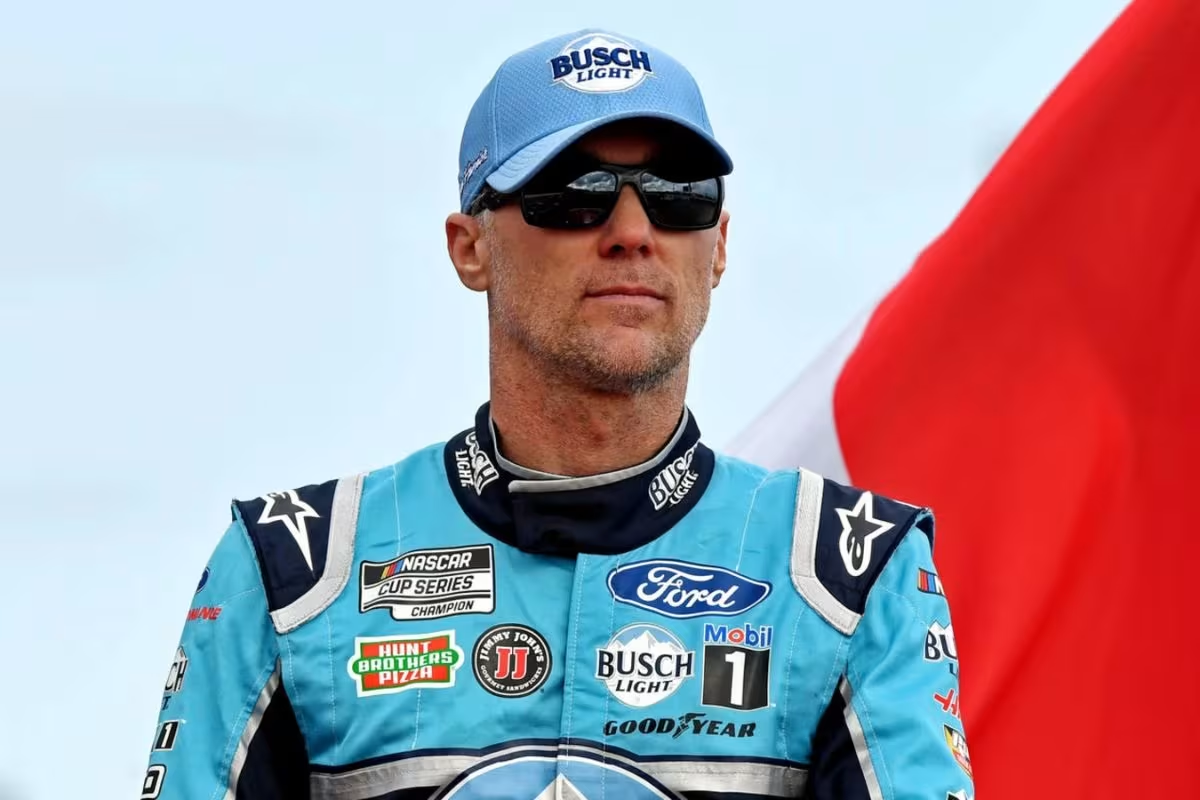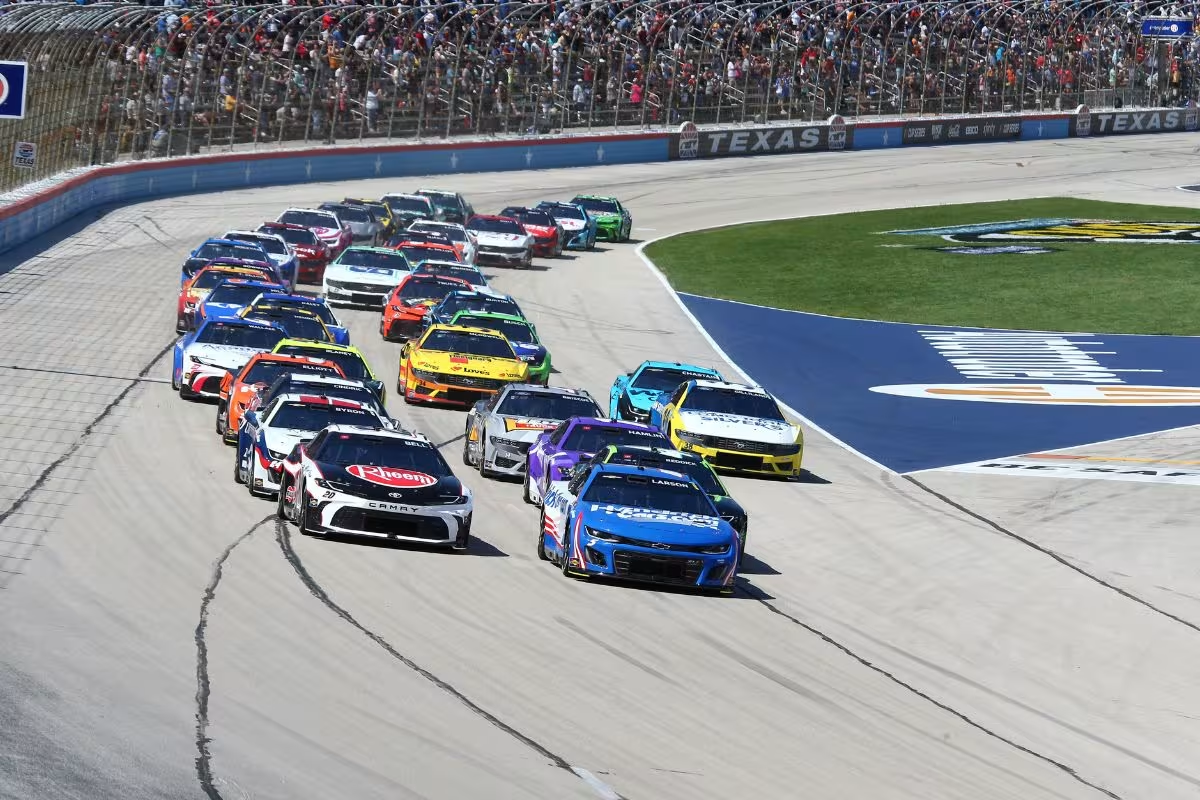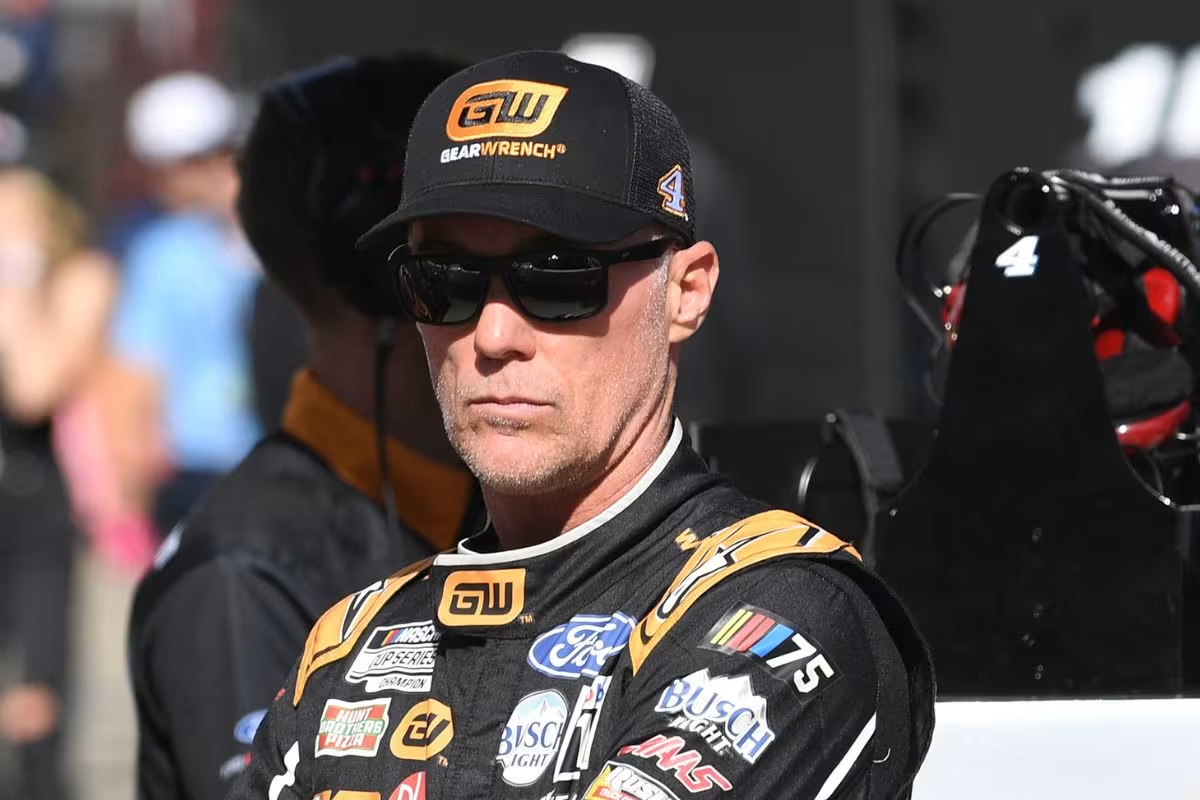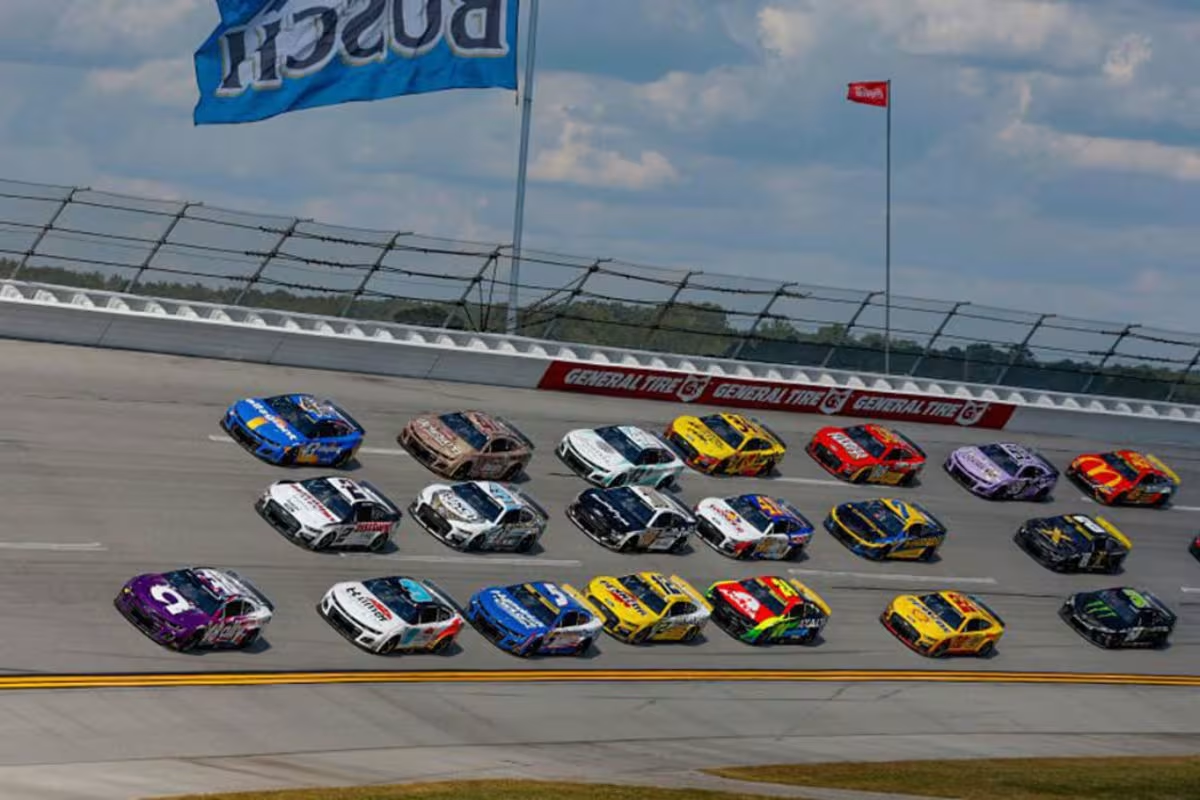Kevin Harvick Goes Off on NASCAR’s Rule Changes: Kevin Harvick is speaking out about NASCAR’s Damaged Vehicle Policy, especially after the chaos at Talladega. His comments come as drivers and fans express frustration over the inconsistent rules. Some drivers were forced to leave races even when their cars seemed fine, while others with serious damage kept racing. What are NASCAR’s intentions behind these decisions?
Key Highlights
- Kevin Harvick criticized NASCAR’s Damaged Vehicle Policy (DVP) after the Talladega race, calling the situation a “complete s—show.”
- He pointed out inconsistencies in how damaged cars were treated, impacting fairness and championship standings.
- Harvick advocated for teams to have autonomy in assessing vehicle viability for competition.
- His concerns highlighted the need for transparency and clarity in NASCAR’s rule application to maintain race strategy integrity.
- The controversy reflects ongoing tensions between safety protocols and competitive integrity in NASCAR’s evolving regulations.
NASCAR’s Damaged Vehicle Policy Controversy
The debate over NASCAR’s Damaged Vehicle Policy (DVP) has grown stronger after several big incidents, especially during the recent race at Talladega. This policy is meant to make racing safer and more efficient, but it has come under fire because of inconsistencies in how it’s applied.
Three major incidents during the Talladega race really showed the difficulties officials face when enforcing the DVP, with the ‘Big One’ pile-up involving 28 cars making the situation even more complicated.
While earlier incidents leading up to Talladega were handled consistently, the response to the aftermath of the wreck raised questions about fairness. Many drivers were allowed to return to the pit lane and continue racing, even though their cars had significant damage. This went against the usual rules of the DVP.
This inconsistency has led to more criticism from teams and drivers, who say the policy is not clear or fair. They feel that the DVP can be applied differently depending on the race situation, which hurts the integrity of the competition and creates confusion about strategies for navigating the policy.
Kevin Harvick Challenges NASCAR’s Vehicle Policy
Kevin Harvick has emerged as a key voice in the ongoing discussion surrounding NASCAR‘s Damaged Vehicle Policy, particularly in the context of the controversy stemming from the Talladega race. In recent weeks, the inconsistency of NASCAR’s application of this policy has sparked frustration among drivers, teams, and fans alike.
The contrasting treatment of incidents at Atlanta and Watkins Glen, where Ryan Blaney and Josh Berry were prematurely retired from their races despite their belief in the viability of their vehicles, highlights a considerable ambiguity in NASCAR’s enforcement. During these earlier races, both Blaney and Berry were towed from the track, raising questions about the integrity of the policy.
Conversely, at Talladega, NASCAR allowed multiple damaged vehicles to be towed back to the pits, deviating from the established rules and leaving many to wonder about the rationale behind such decisions. Harvick, utilizing his platform on ‘Kevin Harvick’s Happy Hour podcast,’ explored the implications of this major wreck, which has been described as one of the most notable in recent NASCAR history.
Harvick’s Criticism of NASCAR’s Ruling
Harvick’s criticism of NASCAR’s ruling regarding the Damaged Vehicle Policy has intensified as he emphasizes the glaring inconsistencies in the enforcement of race regulations. His remarks encapsulate the frustration felt by many competitors and fans alike, particularly following the YellaWood 500 where cars exhibiting notable damage were allowed to continue racing, while others were sidelined. Harvick’s blunt assessment, calling the situation a “complete s—show,” highlights the perceived unfairness and unpredictability of NASCAR’s decision-making process.
“Well, I have a lot of information, but I don’t think I need to go too far because it was a complete s—show.” – Harvick
In his critique, Harvick emphasized the potential ramifications of NASCAR’s rulings on the championship landscape, stating that the inconsistency could “screw up the whole point system.” This sentiment resonates particularly in such races, where tactical decisions can make or break a driver’s season.
“We could completely screw up the whole point system and the way that this all worked out because of who they [NASCAR] decided to tow and who they didn’t decide to tow.” – Harvick
Harvick advocates for a more equitable approach, suggesting that teams should have the autonomy to determine if their vehicles are fit for competition. This perspective aims to improve fairness and to preserve the integrity of race strategy, particularly in pivotal races like Talladega.
NASCAR’s Rationale for the Rule Change
NASCAR’s decision-making process regarding rule changes has often been influenced by the need to maintain competitive integrity while ensuring an engaging race. In the face of increasing incidents, particularly noted during the Talladega race, NASCAR sought to address the growing number of wrecks that threatened the completion of events. With many cars damaged, the organization recognized that preserving the field’s strength was critical for both safety and spectator engagement.
Despite earlier assurances from NASCAR Cup Series Managing Director Brad Moran that no changes would be made to the Damage Vehicle Policy (DVP), the sudden shift during the Talladega race raised eyebrows and prompted criticism. Kevin Harvick’s remarks highlight a fundamental concern among drivers: the perception of inconsistency in NASCAR’s rulings.
“We have so many cars that are wrecked that we might not be able to have a whole race.” – Moran
NASCAR’s rationale for implementing last-minute rule changes may stem from a desire to adapt to the evolving dynamics of racing and prioritize the entire experience for fans and drivers alike.
The challenge lies in balancing immediate safety concerns with the long-term expectations of teams and drivers, ensuring that rule changes do not inadvertently create further discord within the sport.
NASCAR’s Response to the Talladega Incident
The recent incident at Talladega prompted considerable examination of NASCAR’s decision-making processes, particularly regarding the Damage Vehicle Policy (DVP). In the context of escalating oversight, Elton Sawyer, NASCAR’s Senior Vice President of competition, addressed the concerns head-on. He clarified that the intent of the DVP has always been to preserve competitive integrity, stating, “Our goal is never to put good cars out of the race.”
“When we developed DVP five or 10 years ago, that’s never been the goal.” – Sawyer
Sawyer acknowledged past misjudgments, particularly referencing the Kansas race. He noted, “We felt like we probably could have made a different call there,” emphasizing that the organization learns from its experiences. This admission demonstrates an evolving approach to race management, with an eye towards enhancing the viewing experience for fans.
“When we developed DVP five or 10 years ago, that’s never been the goal.” – Sawyer
In response to the Talladega incident, Sawyer maintained that the decisions made were appropriate, particularly as he recounted the events leading to the caution. The collision between Joey Logano and Harrison Burton, which catalyzed the late-race chaos, exemplified the unpredictable nature of superspeedway racing.
By allowing the race to continue, NASCAR aimed to provide fans with an exciting resolution rather than a series of premature retirements.
News in Brief: Kevin Harvick Goes Off on NASCAR’s Rule Changes
The debate over NASCAR’s Damaged Vehicle Policy shows clear tensions in the sport. Kevin Harvick’s strong criticism highlights worries about how these rule changes affect fairness and safety in racing. While NASCAR aims to make the sport better and more honest, backlash from well-known figures like Harvick shows that there needs to be more discussion about these changes.
Incidents like the one at Talladega add to the challenges of finding the right balance between new ideas and traditional practices in racing. As NASCAR navigates these issues, it’s clear that listening to drivers and teams is important for improving the sport and keeping it fair for everyone.
ALSO READ: How Kevin Harvick and Dale Jr. Rebuilt NASCAR’s Spirit After Dale Earnhardt’s Tragic Death




